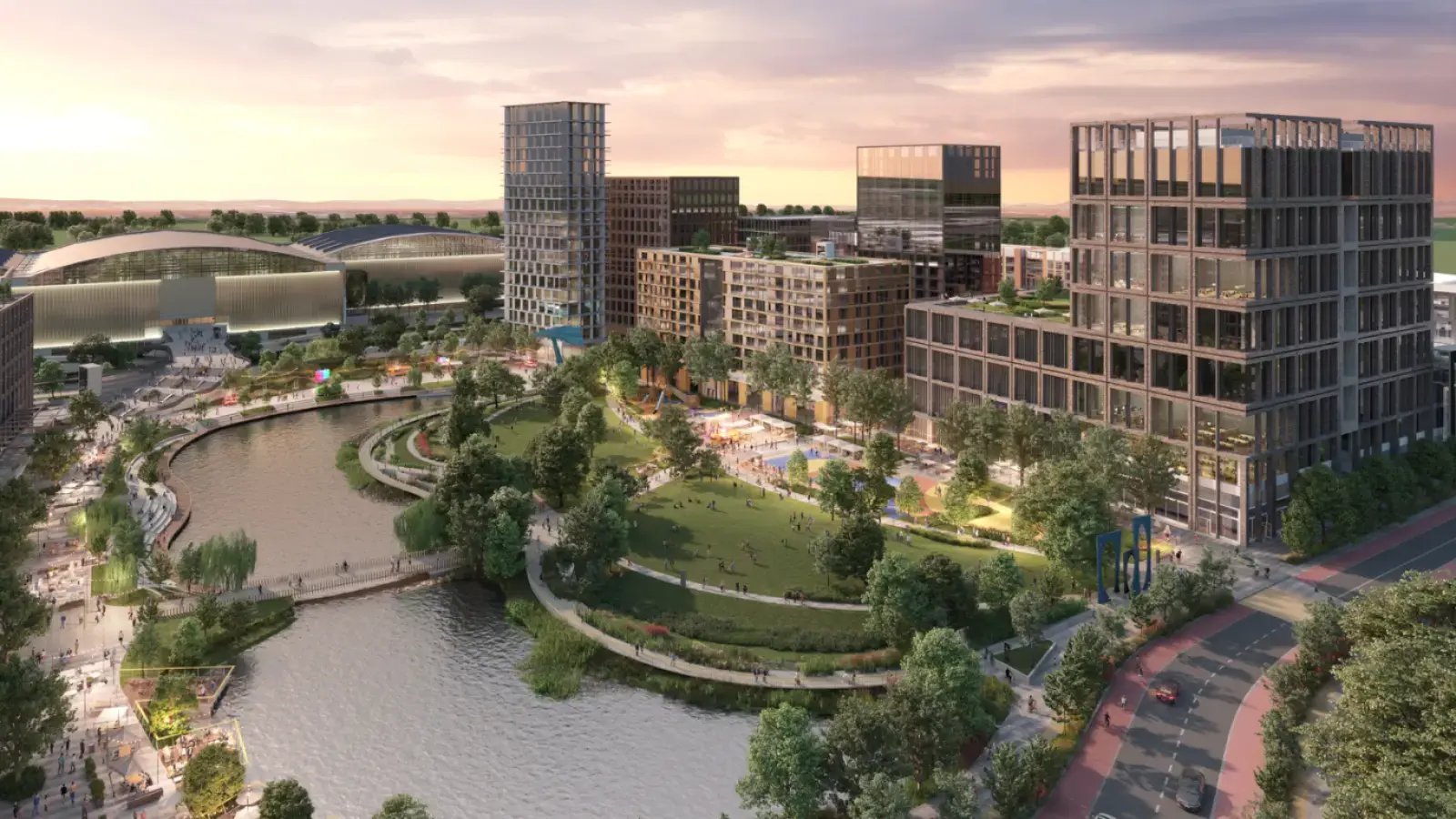
Change for a Quarter at Brabazon
Words by Ursula Cole as featured in Bristol Life by MediaClash
Yes, the new Arena will be part of Brabazon – but there’s so much more to this vast new north Bristol neighbourhood than a stage where U2 might play one day.
For over a century, Filton Airfield was home to innovators, aviators and inventors. Today, at the same site, this spirit of endeavour has infused the creation of Brabazon: Bristol’s biggest and most important contemporary housing, commercial and leisure development.
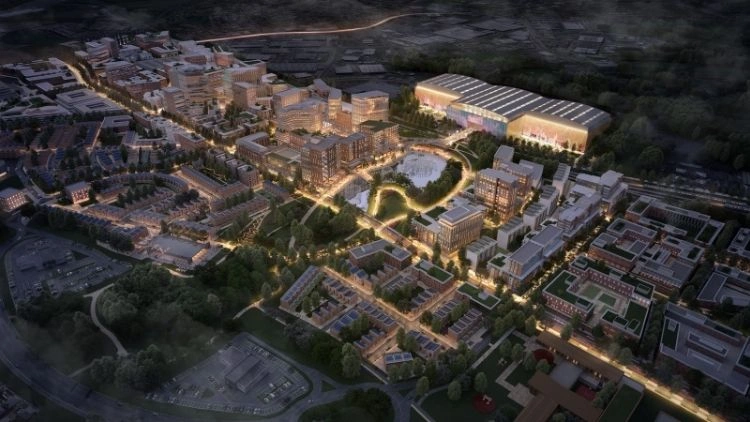
Created on the disused airfields, Brabazon will be a whole new urban quarter for Bristol. It will have 6,500 new homes, 62 acres of employment space, and create 30,000 new jobs. It will be a place for leisure, a centre of learning, a launchpad for business, a hub for industry and invention, with a beating social heart. Brabazon, they say, is “the new playground for Bristol’s next generation”.
At the September Bristol Life Network Lunch, Colin Skellett and Jonathan McDiarmid of YTL, the company creating Brabazon, explained how the development hopes to live up to the legacy of those pioneers who built Concorde at Filton, and what opportunities this multi-billion pound investment is bringing for local businesses.
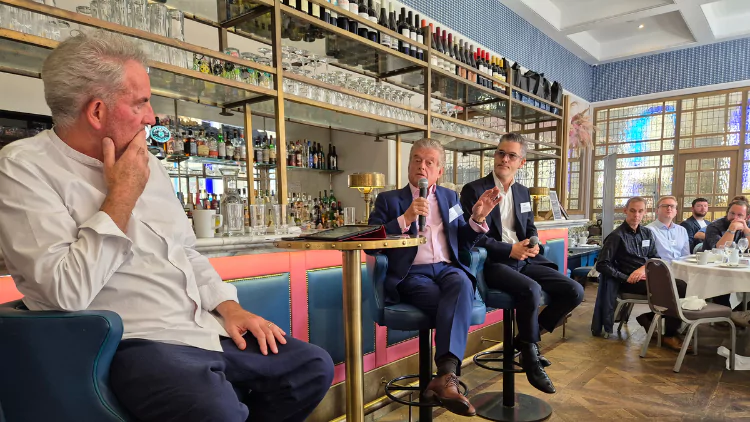
To begin with, Colin helped to put the sheer scale of the Brabazon site into perspective. “It's 400 acres, inclusive of the Arena. It’s about three to three-and-a-half kilometres long; at it’s widest point it’s about a kilometre. It’s a huge master plan of visionary proportions – if you look at the likes of London’s King’s Cross development, Wembley Park and Battersea Power Station, Brabazon dwarfs them all.”
About six years ago, Colin says, YTL were looking for a hotel site in Bristol. “We couldn’t find one, but we saw a presentation about this airfield that had come on the market. We thought, well, that’s quite big. We like doing big things. So we bought it. Then we suddenly saw these enormous hangers and thought, better have those as well.”
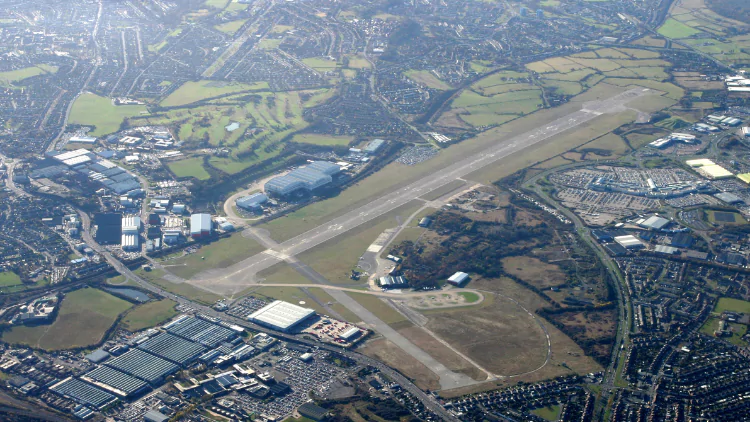
The investment represented YTL’s first big venture into the UK. “We have hotels, the Thermae Bath Spa etc, but this was a big pitch for us, and it was taking an incredible risk to do it, because the perceived knowledge was: this is Filton.
"There’s a limit to what you can do in Filton. And we demonstrated that you can, by building something that’s really sustainable, by using the right people to help you steer the master plan, and by building properties that are a good design, with 25% more space around, you can create a market that’s not far away from a central Bristol market.
So it’s a big investment for YTL, and one we’re committed to seeing through. We are master-planning and delivering the whole of the site, and we are delivering it ourselves.”
To date, the total investment has been about a quarter of a billion (Colin is coy about the original purchase price of the site); the arena will probably be another 250-300 million.
Brabazon has already delivered its first phase of around 300 homes, and is currently building the second, along with miles of roads to service the forthcoming train station, and are working on the Arena.
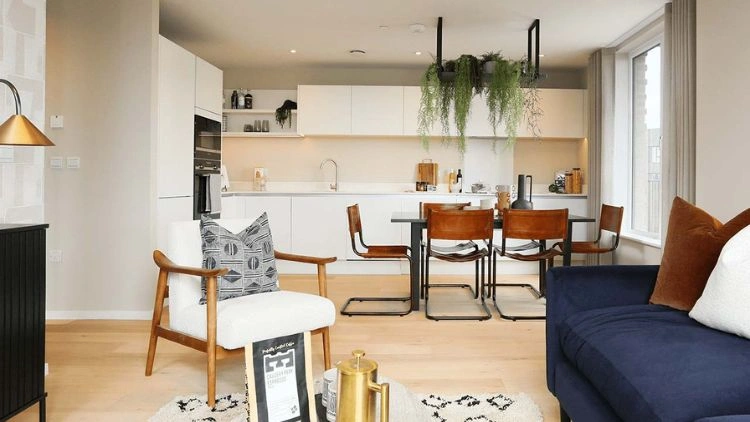
They’ll be bringing in local retailers and some of the nationals, lots of community space for art and language classes, and a huge student accommodation scheme.
So that’s what’s going in – is there anything that definitely isn’t, that doesn’t fit the vision?
“We are not going to build poor quality”, says Colin. “We are not going to compromise the feel of the place. Creating somewhere that will be a total community is really important to us. So there’s nothing we’ve definitely ruled out, as long as it fits with the ethos of the place and provides benefit to the people who will live and work there.”
Also key to this ethos is employing a local workforce. “YTL has had a policy for the last 20 years of not employing main contractors. So what we do is to make a great deal of use of local subcontractors, with a sizable direct labour force as well.
At Brabazon, we are extending the subcontract force, and creating a new construction company that will bring together the construction skills we already have. We can provide the ultimate long-term security for subcontractors, not merely at Brabazon but for the Wessex Water programme [also run by YTL] too.”
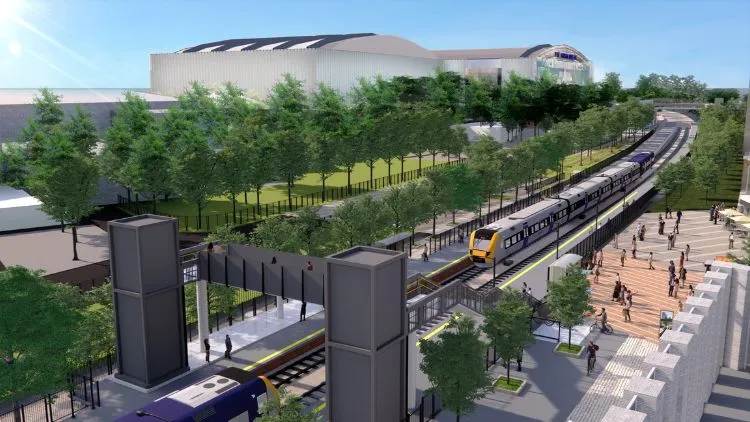
And they are keen to do even more on apprenticeships and skills. “We already have our own academy within the Wessex Water group and we’re going to do the same thing at Filton. We currently take about 100 apprentices a year; we want to double that number, because we need to create the skills.
The biggest barrier to delivering the government’s new-housing targets is not having the skills to do this, so the best we can do is really grow skills and ensure employment for the long term.”
Next, Jon talked us through Brabazon’s impact on Bristol. What, in a nutshell, does it mean for the city?
“I think it means a lot of things to Bristol. Fundamentally, over the course of time, Brabazon should be seen to be an extension of Bristol, bringing more visitors to the city and more job opportunities. We’re also very keen to bring in an education campus to Brabazon in the fullness of time.
So I guess it offers employment opportunity, a lifetime place to live, but to bring all of that together, the glue that needs it all together, fundamentally the question will be: what will the Brabazon urban centre look like? It needs to be a place that people want to come to, day in, day out. So that’s all about the shops, the cafés, the restaurants, bars, the lake, the park.
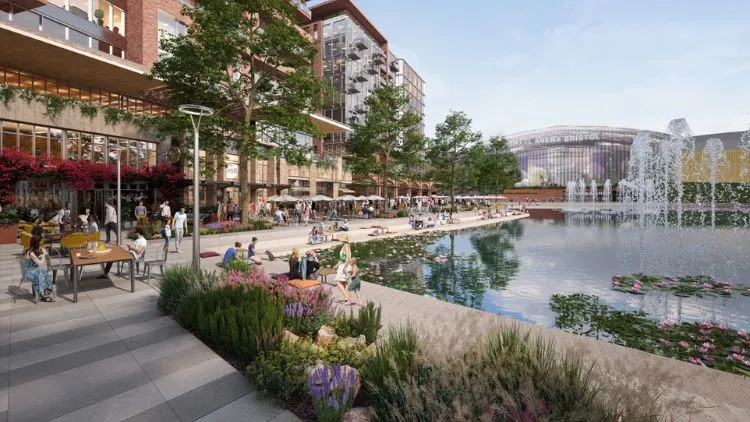
"When you look at north Bristol, what surrounds us is already really amazing – not just the employment sector, but the leisure offering, from Aerospace Bristol to The Wave, the ice rink, the golf courses” – there’s also Cribbs Causeway, of course, the soon-to-be-built Bristol Zoo, and the much-vaunted Arena.
“Brabazon brings all these together and says, come to north Bristol for more than just a gig; go for dinner, stay overnight, go to the ice rink, and visitors have plenty of opportunities to visit Bristol city centre as well. Dare I say it, I see it as a sort of Canary Wharf to the West End- type comparison.”
And obviously Brabazon will offer endless opportunities for business partnerships with the city.
“If you look at the design businesses, the consultancy businesses and the varying different disciplines across property development, clearly, there is a space for those businesses to support Brabazon – and again, as the real estate starts to come to fruition, fundamentally, we need them to come work and live here.
“Our five-year plan is to start to build the core of the town centre of Brabazon – you know, the retail occupiers, commercial offices, businesses of all sorts that need space, shops, restaurants, bars. We very much see Brabazon having a Bristol take, a regional take.”
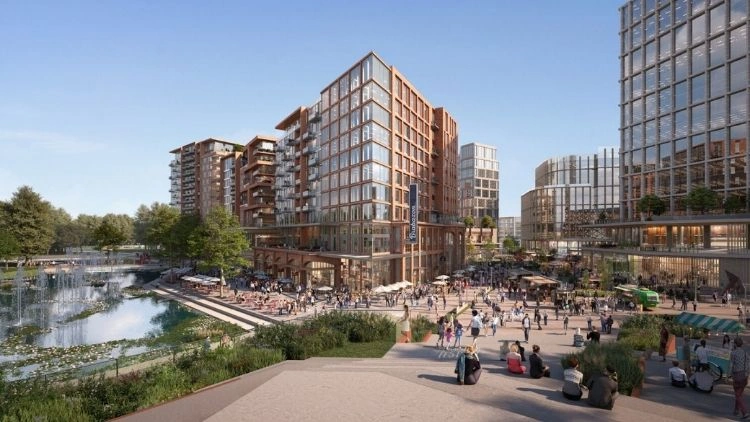
“And you know, the reason people want to live in Brabazon, apart from the fact that it’s a great place to live, is that is has a Bristol postcode,” says Colin.
“Bristol is a great place. People want to move here. Brabazon is an extension of Bristol, and it needs to be an extension of the spirit of Bristol, which is about localism. It’s about creating and encouraging somebody who’s an expert in doing this, and studying in other places, bringing in the start-ups that will become the bigger businesses in the future.
“There’s an absolute commitment to that, and one of the great advantages we have is that we don’t have to answer to a whole pile of shareholders who are just interested in the financial returns. We have to answer to the spirit of the vision that we are creating, and we will do that. We will not be bringing in lots of chains – we might bring in a supermarket, because there aren’t many local supermarkets – but you know, most of it will be local businesses, and most businesses that will help to create what will be an extension of Bristol, be part of Bristol.
“When the train link is up and running, it’s going to be 12 minutes between Temple Meads and Brabazon. Some people talk like it’s out on the moon – but it will be part of Bristol.”
To learn more, visit www.brabazon.co.uk.





